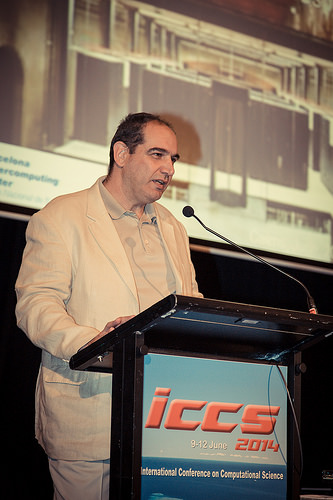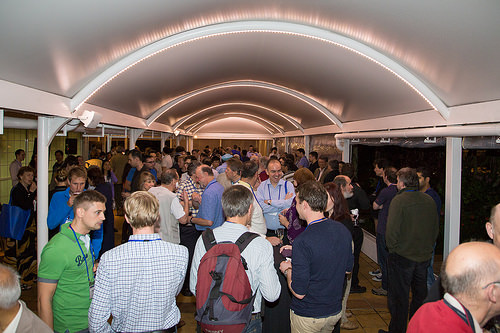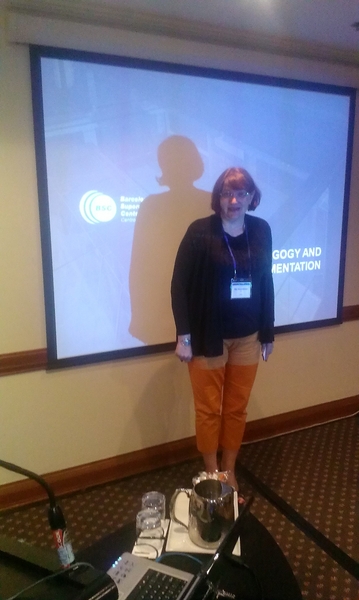The International Conference on Computational Science (ICCS) is an annual conference that brings together researchers and scientists from mathematics and computer science as basic computing disciplines, researchers from various application areas who are pioneering computational methods in sciences such as physics, chemistry, life sciences, and engineering, as well as in arts and humanitarian fields, to discuss problems and solutions in the area, to identify new issues, and to shape future directions for research. Last year the ICCS 2013 was held in Barcelona.
This year the conference was held in Cairns, Australia. Vassil Alexandrov (Extreme Computing Group, Computer Science Department) was keynote speaker on 11th of June with a talk entitled Towards Scalable Mathematical Methods and Algorithms for Extreme Scale Computing.
4 papers authored by BSC researchers were included in the proceedings, 2014 International Conference on Computational Science, and presented on the conference.
3 of the workshops on ICCS 2014 were organized and led by BSC researchers: The 2nd Workshop on Solving Problems with Uncertainties, organized by Vassil Alexandrov, focused on approaches and methods of tackling problems with uncertainty in an increasing variety of areas ranging from problems in physics, chemistry, computational biology to decision making in economics and social sciences. Uncertainty is unavoidable in almost all systems analysis, in risk analysis in decision making and economics and financial modelling, in weather and pollution modelling, disaster modelling and simulation, etc. The workshop attracted over 30 participants and had 5 talks, with the main interests being in methods and algorithms for solving problems with uncertainties, stochastic methods and algorithms for solving problems with uncertainty, methods and algorithms for quantifying uncertainties such as dealing with data input and missing data, sensitivity analysis (local and global), dealing with model inadequacy, model validation and averaging, software fault-tolerance and resilience, etc.
Vassil Alexandrov co-organized with Jack Dongarra (University of Tennessee/ORNL, USA) the Mathematical Methods and Algorithms for Extreme Scale. It was first in the series and focused on the novel mathematics and mathematical modelling approaches together with scalable scientific algorithms needed to enable key science applications at extreme-scale. The workshop attracted over 40 participants and had 5 talks focusing on strategic developments as well as strategic approaches in the area as well as served as a forum for Computational Scientists to discuss the mathematical and algorithmic challenges and approaches towards exascale and beyond.
The BRIDGE2014 Workshop: Bridging the Talent Gap with Computational Science Methods was organized by Nia Alexandrov (Education and Training Team). It focused on tackling the HPC talent Gap, which is similar, according to IDC and our latest studies, in EU, USA, Japan as well as in BRICS and Latin America. Reflecting the fact of mathematics led innovation both in EU and USA, with critical demand of Computational Science Research Methods is capable to bridge the above gap, the aim of the workshop was on the overall environment and how the needed research skills for changing HPC ecosystem can be built into the Postgraduate studies and Professional Development Training.
There have been 47 attendees on the workshop and the six talks provoked a lot of questions which were the basis of an interesting discussion. Among the highlighted issues were not only the general points of the HPC skills gap and the position of Computational Science to address some of them but also the local specifics; successful experience in working with researchers from natural sciences were shared; as well as innovative way of teaching students. Methodology for assessing the context factors for design and delivery of successful courses on PG level was presented as well. The response to this first edition of the workshop has encouraged us to continue with further events.




